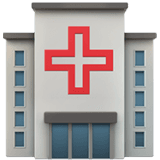
How to make an appointment with a veterinarian in Luxembourg
This guide will take you step by step through the process of making an appointment with a veterinarian in Luxembourg. We will tell you how to choose the right clinic, how to make an appointment and what documents you may need.
Be prepared to take responsibility when you make the fateful decision to get a pet. Cats, dogs and other our little friends cannot talk, but they can show you if something is wrong with them, or you can notice it yourself. In such a case, you must immediately go to a veterinary clinic for help.
A veterinarian's help may be needed in a wide range of situations. Here are some examples of when you should be worried and take your pet to the vet:
Behavior and mood changes
Appetite changes
Digestive problems
Injuries
Signs of pain or discomfort
Respiratory problems
Changes in appearance
Regular checkups
Remember that sometimes your pet may only need to be monitored for a day or two, but it is best to contact a professional at the first sign of concern.
Read article
Choosing the right veterinary clinic plays an important role in your pet's life. Let's look at some options on how to choose a clinic in Luxembourg and what to do in case of an emergency.
Don't forget to take out insurance for your pet - it is extremely important for their health. Insurance will help cover medical expenses and ensure that your pet receives proper care when needed. Dog insurance is also mandatory in Luxembourg.
When you have a routine check-up
For regular check-ups, vaccinations and other procedures, you should choose a clinic where your pet is seen on a regular basis. Your regular veterinarian already knows your pet's medical history and has probably been monitoring his or her condition for some time. If there is a change in your pet's health during an exam, the doctor will know right away.
Of course, the cost of services is an important factor in this process. However, when it comes to the health and life of your beloved pet, you should properly balance your options and the help you are given to choose the best option. Especially when the price is justified by highly trained professionals, quality treatment and attention to your pet.
To make it easier to choose a veterinarian and clinic, you can read our special article.
Read article
Emergency Situations
In the event of an emergency - injury, poisoning or obvious signs of illness - do not delay your pet's veterinary appointment. Go to the clinic immediately.
What are emergency situations?
- Injury
For example, your pet has fallen, been hit by a car, or been bitten while out for a walk.
- Poisoning
Your pet has eaten something outside or at home.
- Difficulty breathing
Your pet can't breathe normally, sniffles, or can't breathe through the nose.
- Seizures
This could be a sign of epilepsy, seizure, or another serious condition.
- Vomiting
This could be vomiting, diarrhea, or blood, which could indicate either internal injury or infection.
Where to go
If you have your own clinic and it is open at the time of the emergency and located in the immediate area, then it is best to go there. In all other cases - you will need to use the services of an animal college.
What is a veterinary college?
The country is home to the Collège vétérinaire. It brings together several professional organisations:
- AMVL. Association of Veterinarians of the Grand Duchy of Luxembourg - Association des Médecins Vétérinaires du Grand-Duché de Luxembourg.
- LAK. Luxembourg Association of Small Animal Specialists - Association Luxembourgeoise des Praticiens 'Petits Animaux'.
- LGP. Luxembourg Association of Large and Domestic Animal Specialists - Association Luxembourgeoise des Praticiens des 'Animaux de Rente'.
- ALVH. Luxembourg Association of Food Hygiene and Safety Specialists - Association Luxembourgeoise des Vétérinaires Hygiènistes.
The Association's veterinarians work in shifts, are on call and are available 24 hours a day to help your pet. Here are the official recommendations for what to do in an emergency.
- Call the doctor on duty
Several veterinarians are on duty every day throughout the Grand Duchy and can be reached on 112 or +26 77 12 3426 77 12 34.
- Tell what happened
The committee reminds that an on-call veterinarian is not an attending physician and if he or she is not on call, he or she may not be on site. Also, on-call veterinarians do not treat a pet's regular illnesses, only emergencies.
- Go to the address
It may be listed on the website or the veterinarian will inform you in addition. The Collegium also reminds you that there is an additional charge for such a visit.
The list of documents for a visit (both in the case of a regular checkup and in the case of an emergency appointment) does not differ much. It is best to keep a package of documents in one place, so that it is possible to take everything at once and not forget anything (especially relevant in case of an emergency).


After a visit to the veterinarian, your primary responsibility is to clearly follow the veterinarian's instructions and recommendations:
- Purchase the necessary medications and clearly follow the schedule for administering them;
- Schedule follow-up visits with the veterinarian;
- Find out if you will be reimbursed by your pet's insurance company.
Where to buy medicines
In Luxembourg, as in any other country, there are many ways to obtain medicines:



Insurance refunds
Of course, the refund process (and refundability in general) depends on your insurer and the benefits included in your policy. In general, here's what you need to do to recoup the money you've spent on your pet's care:
- Review the pet's insurance
Make sure the care you received is covered by your insurance.
- Go to your insurance company's website
Under "Refunds" (it may be called "Reimbursement" or "Pet Insurance Claim Form"), you'll find step-by-step instructions and any necessary forms.
- Fill out the form, if necessary
Attach all receipts and statements for your pet's care.
- Submit your claim
All contact information should be listed on your insurance company's website.
After that, all you have to do is wait for a response from the insurance company. If there is anything wrong with your application or if there are errors, you will be contacted by phone or email.
Frequently Asked Questions (FAQ)
Is it possible to get emergency veterinary care in Luxembourg
How to choose a hospital for your pet
What documents do I need to bring to the vet
Source: www.avma.org, www.collegeveterinaire.lu, www.lak.lu, sante.public.lu, www.ema.europa.eu, axa.lu, guichet.public.lu, www.ema.europa.eu, www.zooplus.com, www.pharmacieonline.lu
We took photos from these sources: Kamil Pietrzak, Unsplash